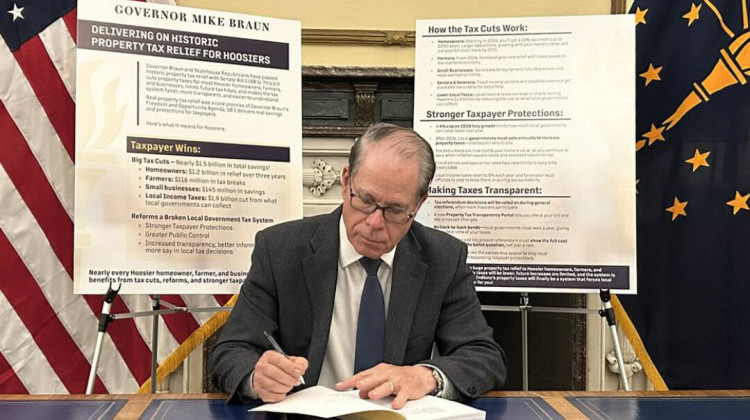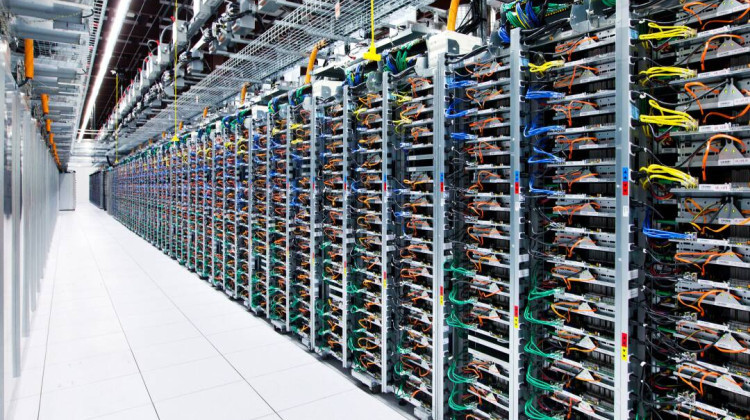
Indiana Attorney General Todd Rokita said major policy decisions should be in the hands of the people and their representatives — not "unelected bureaucrats" at the EPA.
Brandon Smith/IPB NewsThe U.S. Supreme Court ruled in favor of Indiana and 17 other states (and the Mississippi governor) in a case to limit how the federal government can reduce greenhouse gas emissions.
Before it was stalled in court, the Obama-era Clean Power Plan aimed to set carbon emissions limits for the entire power generation industry — effectively transitioning utilities toward renewables and away from coal and natural gas.
The court ruled on Thursday the Environmental Protection Agency can’t adopt “transformational” rules like this unless directed to do so by Congress. The agency would still be able to regulate emissions at individual plants and use other tools to lower emissions.
Climate advocates — and some current and former EPA employees — said the ruling undermines the agency’s authority and hinders the country’s ability to address climate change.
Kim Ferraro is a senior staff attorney with the Hoosier Environmental Council. She said for people in Indiana who want to see every tool used to address climate change — it’s disappointing.
“This opinion goes a long way to gutting EPA’s authority to — to tackle this," Ferraro said.
Join the conversation and sign up for the Indiana Two-Way. Text "Indiana" to 73224. Your comments and questions in response to our weekly text help us find the answers you need on statewide issues, including this series on climate change and solutions.
Ferraro said she is surprised that the Supreme Court didn't reject the case for lack of standing — since the Clean Power Plan never went into effect.
"For the first time, that I know of, the Supreme Court has essentially issued an advisory opinion on a legal matter that doesn't exist. So that's real curious," she said.
Indiana Attorney General Rokita said major policy decisions should be in the hands of the people and their representatives — not “unelected bureaucrats" at the EPA.
“So that's the main thing and then more specifically to Indiana — it's not too late, frankly. This is going to be good for the coal industry and cheaper, more reliable power," he said.
But it’s unclear if this would have any effect on Indiana coal. For years, coal hasn’t been the cheapest energy source. And many utilities have already made changes to try to meet the Clean Power Plan — even though it never took effect.
This has led several Indiana utilities to announce coal plant retirements and move further toward renewables and natural gas.
So far, Duke Energy said the ruling won’t affect its plans to go coal-free by 2035. CenterPoint Energy said the ruling will likely have "minimal" impact on the utility's generation plans — which include closing its A.B. Brown coal plant.
"The retirement is largely driven by costs related to ever-evolving environmental regulations and higher operating costs to run the aging units. We will continue to review the decision and monitor any future activity related to the ruling," the company said in a statement.
The case could set precedent for other legal issues involving federal agencies.
Contact reporter Rebecca at rthiele@iu.edu or follow her on Twitter at @beckythiele.
Indiana environmental reporting is supported by the Environmental Resilience Institute, an Indiana University Grand Challenge project developing Indiana-specific projections and informed responses to problems of environmental change.
 DONATE
DONATE






 Support WFYI. We can't do it without you.
Support WFYI. We can't do it without you.